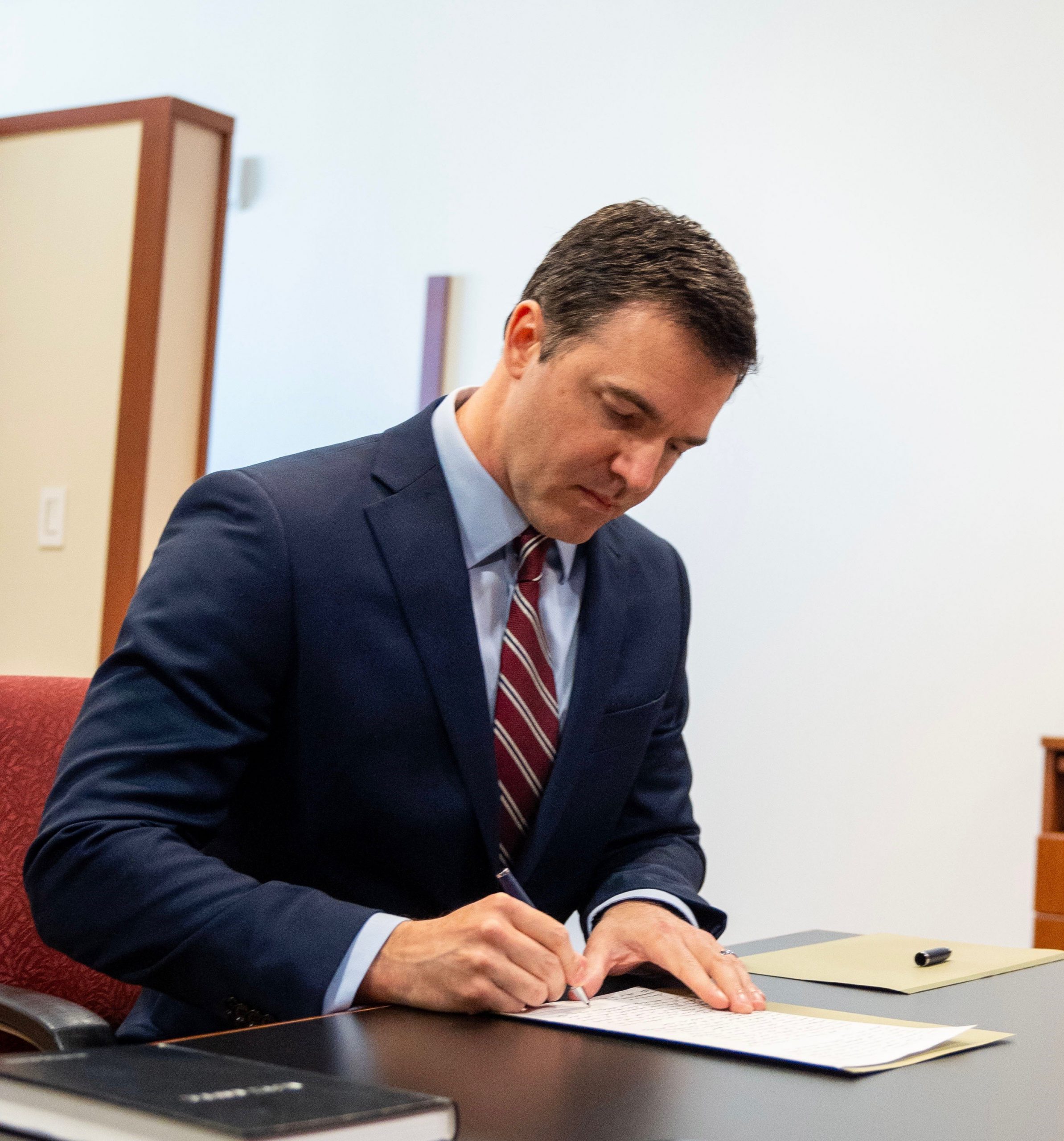Duties & Responsibilities
 The Attorney General is elected by the people of North Carolina to head the Department of Justice. Specific powers and duties of the Attorney General are set forth in the Constitution and Statutes of North Carolina.
The Attorney General is elected by the people of North Carolina to head the Department of Justice. Specific powers and duties of the Attorney General are set forth in the Constitution and Statutes of North Carolina.
The Attorney General:
- Represents all state government departments, agencies and commissions in legal matters
- Provides legal opinions to the General Assembly, the Governor, or any other public official when requested
- Consults with and advises judges, district attorneys, magistrates and municipal and county attorneys when they request assistance and when permitted under the Rules of Professional Conduct
- May intervene in proceedings before any courts, regulatory officers, agencies or bodies, either state or federal, on behalf of the State
- May institute court proceeding on behalf of the State, its agencies or its citizens in any and all public interest matters
- Handles all criminal appeals from state trial courts
The Office does not:
- Have the authority to prosecute specific crimes unless requested to do so by the local district attorney
- Have authority over local district attorneys, local law enforcement, or courts
- In most instances, cannot provide legal advice to individuals or private organizations
